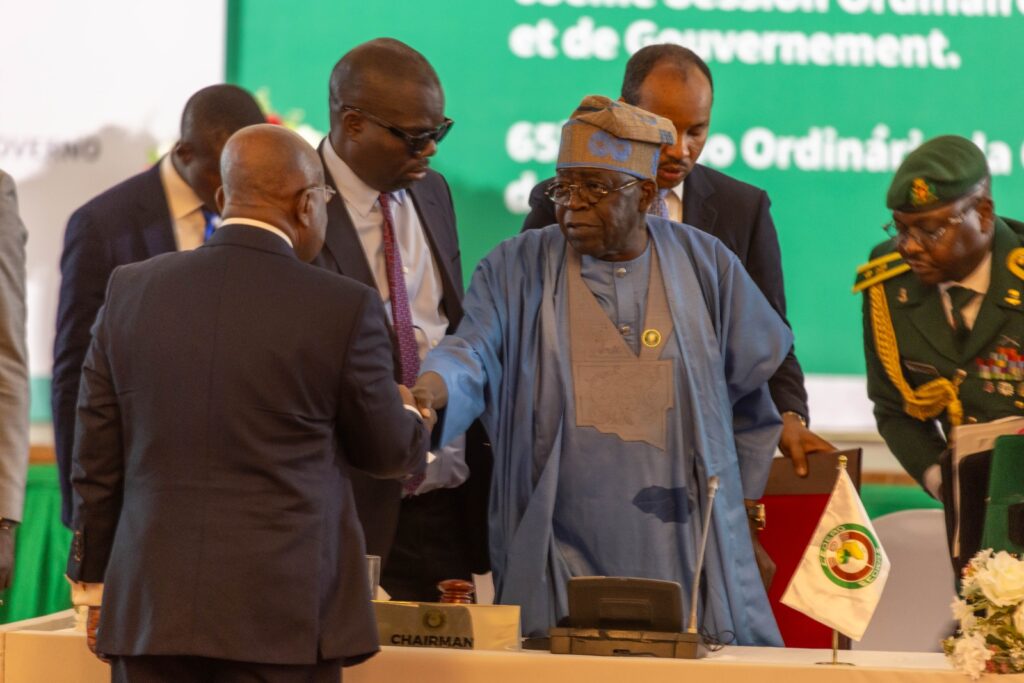ADF STAFF
In a region facing terrorism, coups and transnational organized crime, leaders of the Economic Community of West African States (ECOWAS) have long sought to build a standby force to bolster security.
Member nations’ defense and finance ministers recently proposed an ambitious $2.6 billion security plan that would support a 5,000-strong force, but analysts warn that the plan will face challenges of funding and political divisions within the bloc.
“More than ever, we are at a pivotal moment in the history of our community to address insecurity,” ECOWAS Commission president Omar Alieu Touray said at a meeting in Abuja, Nigeria on June 27.
Touray referenced the 2024 Global Terrorism Index, which signified a shift in the epicenter of terrorism from the Middle East and North Africa to sub-Saharan Africa, with the Sahel region being the most affected.
According to the report, the Sahel accounts for 26% of global terrorist attacks and more than half of all deaths from terrorism in sub-Saharan Africa. The three hardest-hit countries in the Sahel — Burkina Faso, Mali and Niger — have experienced a sharp rise in deaths from terrorist attacks.
Insecurity in the Sahel led directly to military coups in those three countries, which announced their exit from ECOWAS in January 2024.
Just before ECOWAS heads of state welcomed the standby force proposals during their biannual meeting in Abuja on July 7 and tasked Touray with mobilizing financial and material resources, the military rulers of Burkina Faso, Mali and Niger held their first summit on July 6 in Niamey, Niger to sign a separate mutual defense pact.
“Our peoples have irrevocably turned their backs on ECOWAS,” Nigerien junta leader Gen. Abdourahamane Tiani said in a speech.
Leonardo Santos Simão, who leads the United Nations Office for West Africa and the Sahel, said around 7 million people in the region are internally displaced and 8,000 schools are closed, “depriving hundreds of thousands of children of an education and eroding the very basis of any future development in their countries.”
He said the U.N. reached out to the three juntas to urge that they consider remaining in ECOWAS and seek solutions to their grievances “within the family.” Their departure could weaken the bloc, and Touray said the freedom of movement and a common market of 400 million people offered by ECOWAS were in the balance.
ECOWAS has a history of launching interventions dating back to the 1990’s when the regional bloc formed its monitoring group known as ECOMOG and sent interventions to Liberia and Sierra Leone. Most recently the ECOWAS military intervention in The Gambia ECOMIG helped restore order to the country in the wake of a political crisis.
The ECOWAS standby force could start as a 1,650-man brigade and increase in size over time. Member countries are expected to fund the force, but Touray also will approach the African Union for financial support.
“The financial requirements for these proposals are substantial,” Nigerian Minister of Defense Mohammed Badaru Abubakar said during a meeting of ECOWAS ministers of defense and finance in Abuja on June 27. “While the cost for a 5,000-strong brigade is estimated at $2.6 billion annually, an alternative proposal for a 1,650-strong brigade would cost around $481 million per year.”
Nigerian President Bola Tinubu, re-elected to a second one-year term as ECOWAS chairman at the heads of state summit on July 7, urged member states to provide resources to the standby force.
“I must emphasize that the success of this plan requires not only strong political will but also substantial financial resources,” he said in addressing the conference. “Let me underscore that a peaceful and secure society is essential for achieving our potential.”
Kars de Bruijne, a senior research fellow at the Clingendael Institute, said in addition to finding external financing, ECOWAS needs to forge a strategy to deal with Burkina Faso, Mali and Niger.
“Delivering has been the issue with ECOWAS for a long time,” he told The Associated Press.

